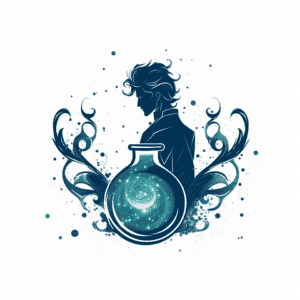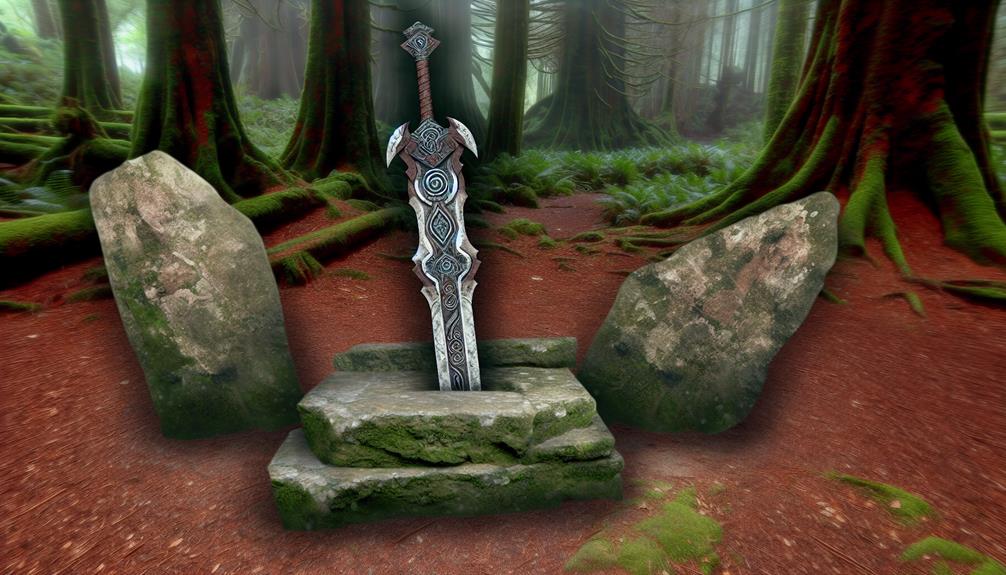You've probably heard the tales of King Arthur and his legendary sword, Excalibur. But have you ever wondered if the sword is more than just a myth? The question of whether Excalibur is real has intrigued historians, archaeologists, and enthusiasts for centuries. As you explore the historical accounts and artifacts associated with this iconic blade, you'll uncover a fascinating blend of fact and fiction that continues to unravel the mystery surrounding Excalibur.
The Legend of Excalibur
The legend of Excalibur, a mythical sword in Arthurian legend, has captured the imagination of people for centuries. The origins of Excalibur are deeply rooted in medieval literature and folklore. It is commonly associated with King Arthur, the legendary British leader who, according to medieval histories and romances, led the defense of Britain against Saxon invaders in the late 5th and early 6th centuries. The sword was said to have been miraculously drawn from a stone or given to Arthur by the Lady of the Lake, depending on the version of the tale. These differing origins have contributed to the mystique surrounding Excalibur.
The legend of Excalibur has been a source of inspiration for countless modern-day adaptations in literature, film, and popular culture. From T.H. White's "The Once and Future King" to the popular 1981 film "Excalibur," the sword has been a central element in retellings of the Arthurian legend. Additionally, Excalibur has made appearances in various video games, television shows, and even stage productions, solidifying its status as an iconic symbol in contemporary media.
Despite its mythical origins, the legend of Excalibur continues to captivate audiences and remains an enduring symbol of power, chivalry, and the enduring legacy of King Arthur. Its portrayal in modern adaptations serves as a testament to the timeless appeal and significance of this legendary sword.
Historical Accounts and Artifacts
Historical accounts and artifacts provide valuable insights into the enduring legacy of Excalibur and its significance in medieval literature and folklore. When examining historical evidence, it is crucial to note that while there is no concrete proof of Excalibur's existence, there are compelling references in medieval texts that suggest the sword had a profound impact on the cultural imagination of the time. Additionally, archaeological findings have unearthed ancient swords that could potentially be linked to the inspiration behind the Excalibur legend, further fueling scholarly debates and public fascination.
- Delve into historical accounts: Explore the rich tapestry of medieval literature, including the Arthurian legends and chivalric romances, which depict Excalibur as a symbol of kingship and divine right, stirring feelings of awe and wonder as you uncover the intricate web of stories woven around this enigmatic sword.
- Consider the implications of archaeological findings: Engage with the tantalizing discoveries of ancient swords and artifacts that offer glimpses into the material culture of the medieval world, evoking a sense of curiosity and speculation about the potential real-life origins of Excalibur.
Unraveling the Mystery
Uncovering the truth behind the legend of Excalibur involves exploring both medieval literature and archaeological findings to shed light on the enduring mystery surrounding this iconic sword. When examining evidence from medieval literature, the sword is often depicted as a symbol of King Arthur's rightful rule and a source of mystical power. These accounts contribute to the enigmatic nature of Excalibur, as they blur the lines between historical fact and myth.
In terms of archaeological findings, there have been modern replicas of swords resembling Excalibur that have been unearthed. These replicas provide valuable insights into the craftsmanship and materials used during the medieval period, but they do not definitively prove the existence of the legendary Excalibur. However, these findings do serve as a reminder of the enduring fascination with this legendary sword and the ongoing quest to unravel its mystery.
The enduring allure of Excalibur continues to captivate historians, archaeologists, and enthusiasts alike. The examination of evidence from both medieval literature and archaeological discoveries is essential in piecing together the puzzle of Excalibur. While the truth behind the existence of Excalibur may remain elusive, the ongoing exploration of historical accounts and artifacts keeps the legend alive, ensuring that the mystery of Excalibur will endure for generations to come.
Frequently Asked Questions
Can the Excalibur Sword Still Be Found Today?
Can the Excalibur sword still be found today? While the sword's origins are steeped in legend, historical evidence does not support its existence. Many believe it to be a symbolic representation rather than a tangible artifact.
What Powers or Magical Abilities Did Excalibur Possess?
Excalibur's origin is steeped in mythology, with the sword symbolizing power and authority. Its magical abilities include granting its wielder strength and victory in battle. The sword's mystical properties are central to its legend.
Are There Any Modern-Day Replicas or Interpretations of the Excalibur Sword Available for Purchase?
You can find modern-day replicas of the Excalibur sword available for purchase online. Crafted with attention to detail, these replicas symbolize the legends and mystical aura surrounding Excalibur, making them popular among enthusiasts.
Is It Possible to Visit Any Locations Associated With the Excalibur Sword in Real Life?
You can visit locations associated with the Excalibur sword in real life. These places hold historical significance and are linked to the sword's origin. Evidence-based research supports these connections, making it an intriguing and educational experience.
Are There Any Famous Individuals or Historical Figures Who Have Claimed to Possess the Real Excalibur Sword?
Historical claims and legends surrounding Excalibur have been tied to famous owners and mythical origins. Numerous historical figures, including King Arthur, have been associated with the sword, adding to its enduring allure and mystery.
Conclusion
In conclusion, while the legendary Excalibur sword may not be proven to be real, there are historical accounts and artifacts that continue to fuel the mystery surrounding it. For example, the 12th-century writer, Geoffrey of Monmouth, described the sword in his work "Historia Regum Britanniae," adding to the intrigue and debate about its existence. Despite the lack of concrete evidence, the fascination with Excalibur will likely endure for generations to come.

